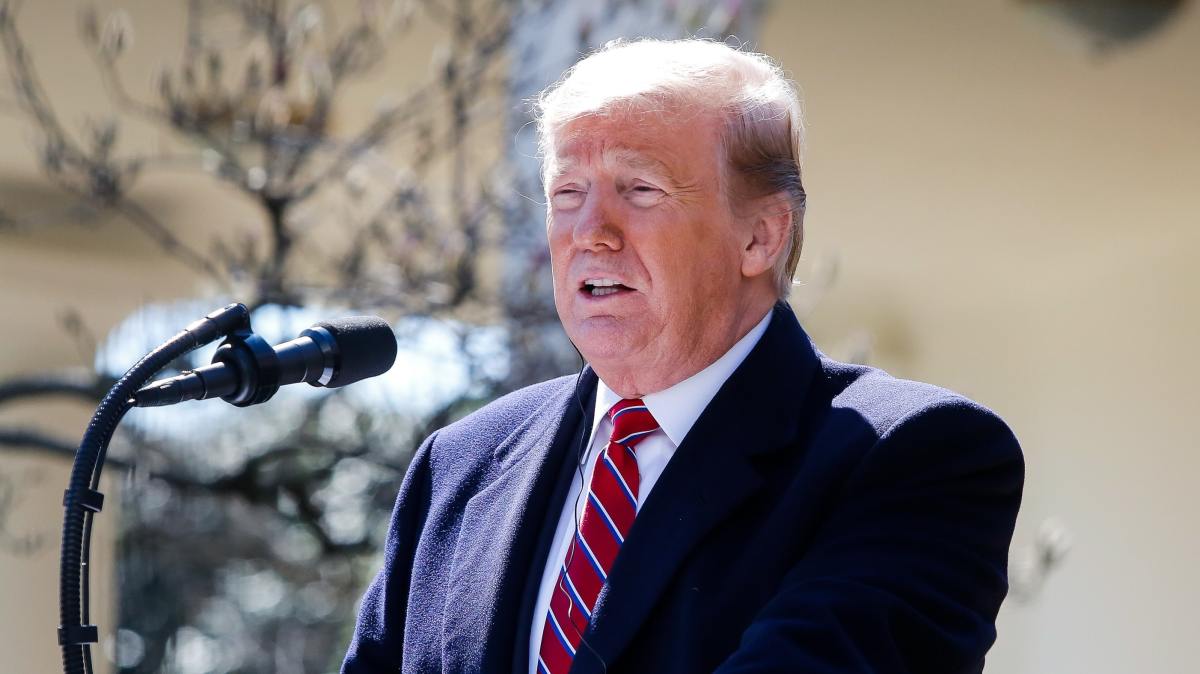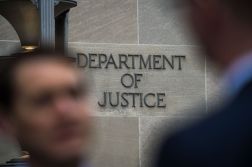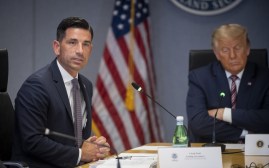Mueller report confirms Trump lobbied top intel officials to refute Russia stories

President Donald Trump pushed top intelligence officials to refute information tied to the investigations into links between his 2016 presidential campaign and Russia, according to information publicly released Thursday in Special Counsel Robert Mueller’s report.
According to the report, Trump phoned then-NSA Director Adm. Mike Rogers on March 26, 2017 to complain the investigation was “messing up” his ability to get things done with Russia, as far as Rogers recalls. The president also asked Rogers if there was anything he could do to refute news stories linking him to Russia.
Richard Ledgett, former NSA deputy director who was reportedly present for the exchange, drafted a memo about the substance of the call. He and Rogers both signed it and locked it in a safe.
Ledgett “said it was the most unusual thing he had experienced in 40 years of government service,” the report states.
By the time the phone call took place, there were several concurrent investigations concerning Russian efforts to interfere in U.S. politics, including the investigations at the Federal Bureau of Investigation, the Senate Intelligence Committee, the House Intelligence Committee, and the Senate Judiciary Subcommittee on Crime and Terrorism.
The Washington Post first reported the exchange between Trump and Rogers in May 2017.
Rogers reportedly never felt he was given an order by Trump, and the president reportedly did not ask him to push back on the investigation itself, the Mueller report details. Rogers testified as much before the Senate Intelligence Committee in June 2017, noting he felt he had “never been directed to do anything [he] believe[d] to be illegal, immoral, unethical or inappropriate.”
Rogers recalled one other instance where Trump “vented” privately to him about how he wanted the “Russia thing” to go away, according to the Mueller report.
Rogers was not alone in the intelligence community in facing requests from Trump. Days before Trump’s exchange with Rogers, Trump asked Director of National Intelligence Dan Coats and then-CIA Director Mike Pompeo to stay behind following a Presidential Daily Briefing in the White House’s Oval Office. The report states that then, “the President asked them whether they could say publicly that no link existed between him and Russia.” Coats responded that his office doesn’t have anything to do with the investigations, according to the report.
“On at least two occasions, the president began Presidential Daily Briefings by stating that there was no collusion with Russia and he hoped a press statement to that effect could be issued,” the report states.
Former CIA analyst Ned Price said exchanges like the one between Trump and Rogers “have the potential to be disastrous” for the country’s intelligence community.
“Our intelligence agencies and partisan politics are supposed to maintain a healthy distance,” he told CyberScoop. “It’s imperative that intelligence officers feel that they’re insulated from political forces in order to maintain their objectivity.”
The investigation found that Trump’s “efforts to influence the investigation were mostly unsuccessful … largely because the persons who surrounded the President declined to carry out orders or accede to his request.”
The NSA, the White House, and the State Department did not immediately respond to requests for comment.






